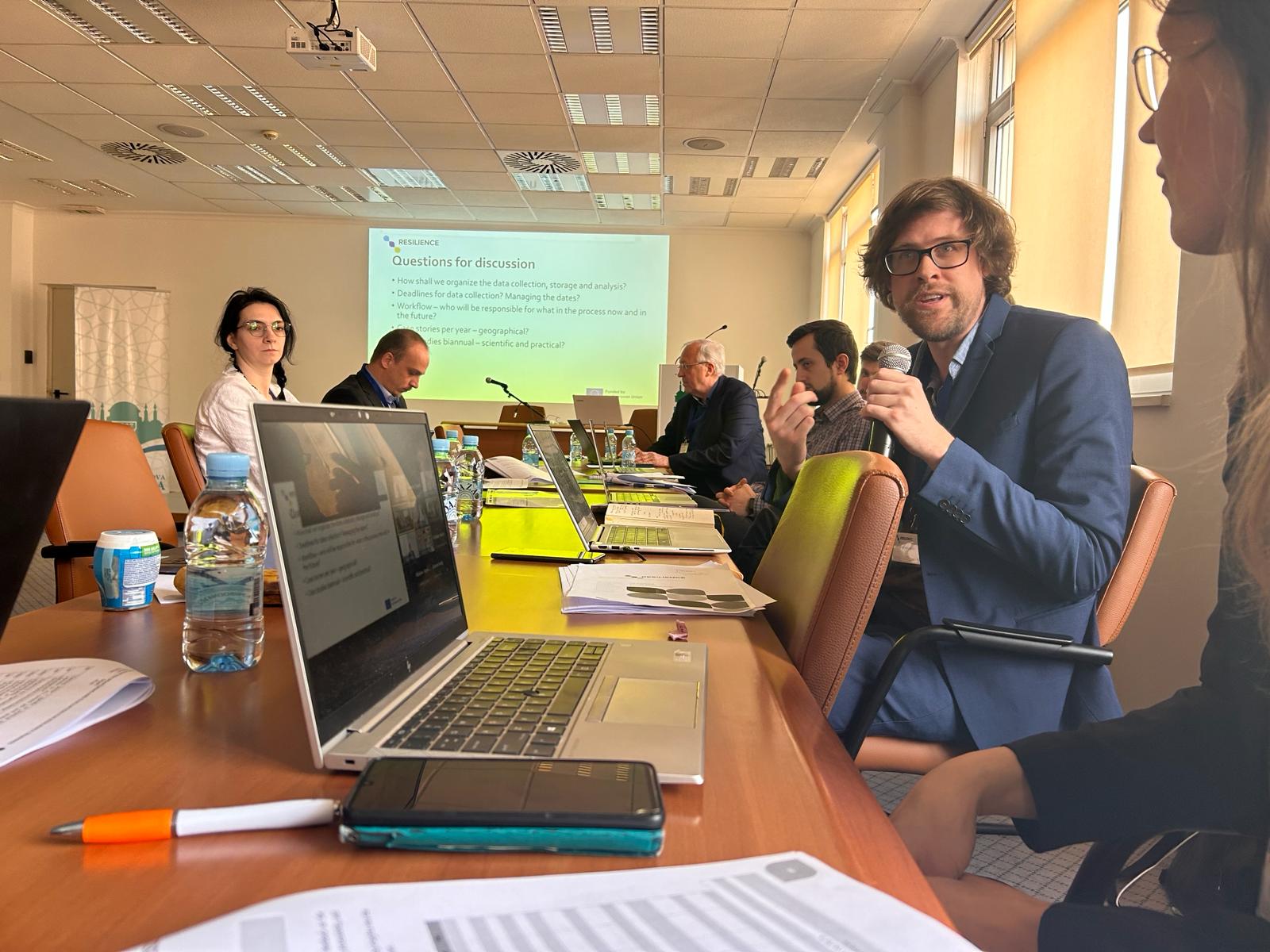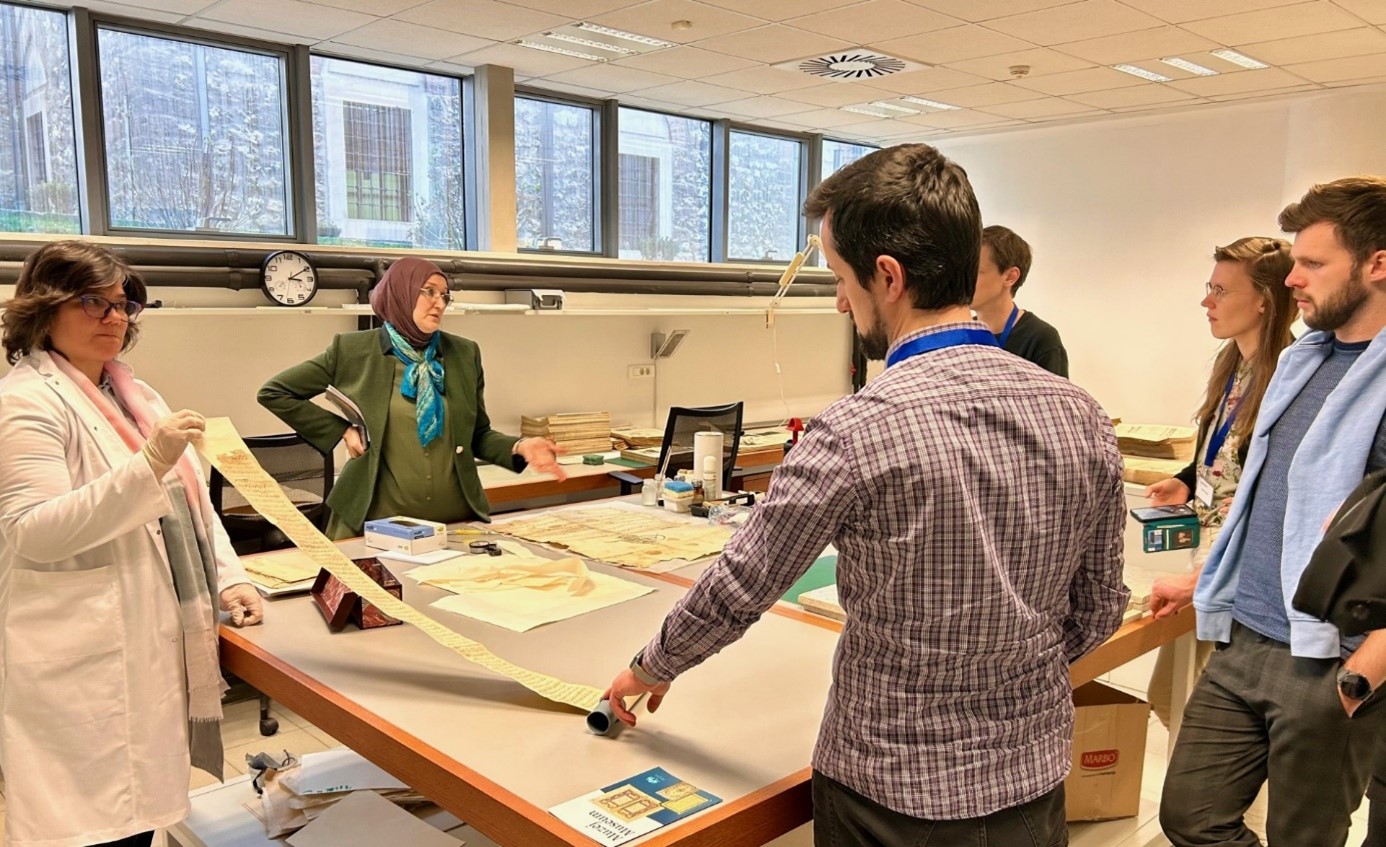At the Interface between Orient and Occident: Understanding User Needs in Bosnia and Herzegovina
Sarajevo, located at the interface between Orient and Occident, was the site of two RESILIENCE workshops last week, where scholars from different disciplines met around the topic of research on religion.
Workshop
The RESILIENCE workshop in Sarajevo was organised by the consortium partner University of Sarajevo together with KU Leuven and other RESILIENCE partners to identify user interests of researchers in Religious Studies and to work together internally on service strategies and impact assessment.
The venue was the impressive Gazi-Husrev-Bey Library, which is an associated member institution of the University of Sarajevo. It was founded in 1537, rebuilt in 2014 as a modern research library and is located in the centre of Sarajevo’s old town.
Local Scholars from Various Disciplines and Religions
The first day of the workshop focussed on the interests and needs of users of a research infrastructure for Religious Studies: Local scholars from various disciplines and religions participated. After introducing the aims, objectives and services of the RESILIENCE RI by the RESILIENCE team, the researchers presented and discussed key problems of libraries in the digital age, leading to fruitful discussions. Irena Pejić, a librarian for Catholic theology, spoke about the problem of modelling selection criteria for digitisation from the perspectives of a librarian and researcher. Hamza Lavić presented the Gazi-Husrev-Bey Library’s digitisation project, which faces the common challenge of normalizing millions of digital records for its holdings with different metadata models from the various collections of manuscripts, archival materials, photographs and other different types of sources for digital use.
Interviews
Individual and group interviews were conducted with the invited scholars to identify the user interests in a research infrastructure in detail, to find out their priorities, with the aim to align the design and development of the services in a later stage accordingly. Researchers were interviewed as the main user group of the research infrastructure; librarians and archivists were also consulted.
Evaluation
In the final discussion and evaluation of the first day of the workshop, the participants expressed the importance of RESILIENCE’s unprecedented initiative to understand and address the needs of researchers in the field of Religious Studies. The strongly multidisciplinary profile of the group showed the interdisciplinary character of this field of research, whose special requirements were pointed out in comparison to those of other humanities.
The focus on the people behind the research was emphasised as an important aspect in Religious Studies, as there is always a person behind the data. This is particularly evident in an area such as Bosnia and Herzegovina, where qualitative research often involves people who have had traumatic experiences and suffer from PTSD, while the interviewer is often also affected by trauma. Possibilities for dealing with this problem were discussed and the desideratum was pointed out that training courses tailored to Religious Studies must focus on dealing with such problems.
In an internal RESILIENCE meeting, possible synergies between the work packages that are responsible for the Services, Users and Impact areas were explored.

Discussion during the Impact Assessment Workshop.
Workshop Impact Assessment
The next morning featured a workshop on Impact Assessment as an essential task in the development of a research infrastructure, led by colleagues from the University of Sarajevo. It was held in a hybrid format with online participants from several countries. More about the workshop can be read here.
Gazi Husrev-Bey Library
This was followed by a tour of the Gazi Husrev-Bey Library with its museum, special collections of oriental manuscripts, archival documents, archives of the Islamic Community in Bosnia and Herzegovina and the Department of Conservation and Restoration. The special needs of a library located at the interface of different religions and disciplines, whose collection objects have different scripts, languages and materials, also became apparent here.

In the laboratory of the Department of Conservation and Restoration of the Gazi Husrev-Bey Library.
Book Heritage Lab
The visit concluded with a hybrid meeting on the Book Heritage Lab as a RESILIENCE service with representatives of the KU Leuven Book Heritage Lab, of the Gazi Husrev-Bey Library and the New Georgian University to plan collaborations in the field of manuscript analysis and digitisation.
All participants agreed that it was a valuable meeting with diverse content and significant results on different levels, which was perfectly placed in Sarajevo with its special history within different ethnicities, cultures and religious affiliations.
***
The University of Sarajevo offers fellowships within the RESILIENCE Transnational Access Program in cooperation with the Gazi Husrev-Bey Library, here you can find more information about the collections.
Visual: Local researchers and RESILIENCE team members on the rooftop of the Gazi Husrev-Bey Library, in the background the Gazi Husrev-Bey Mosque from 1530 with clock tower on the right from the seventeenth century.